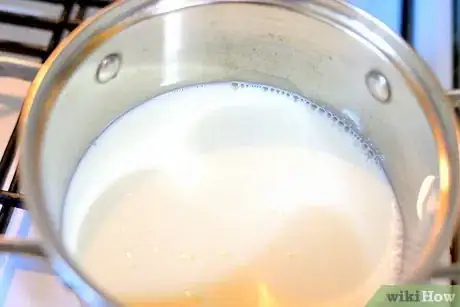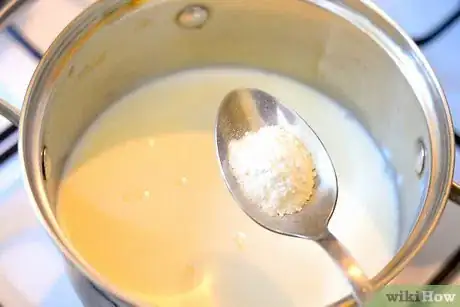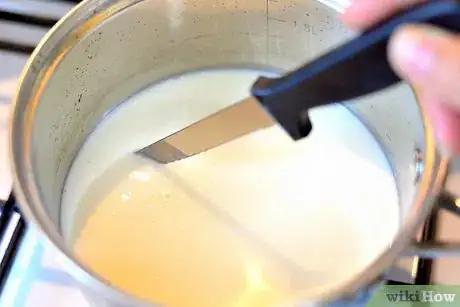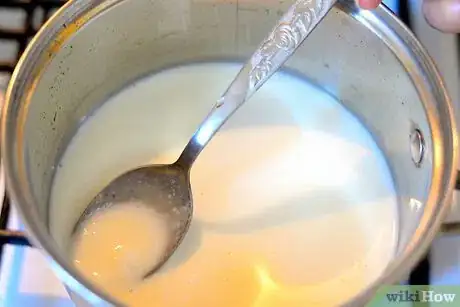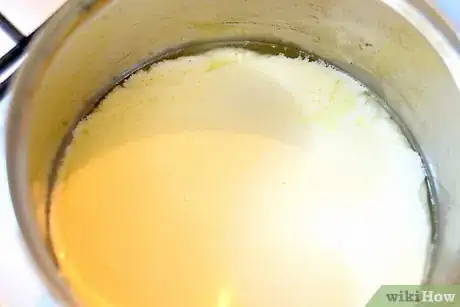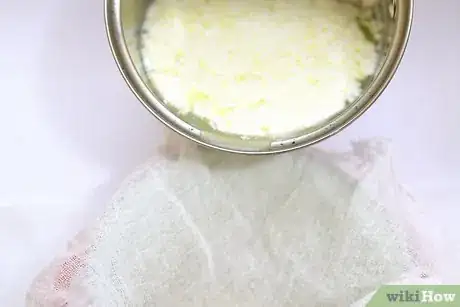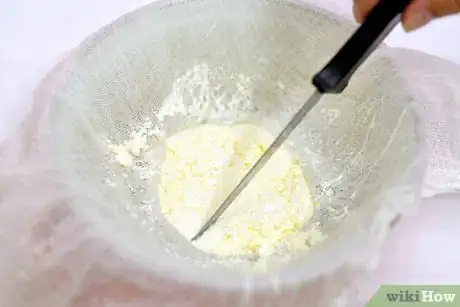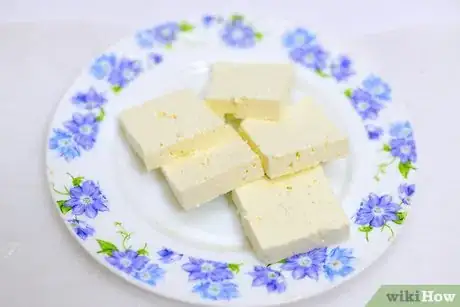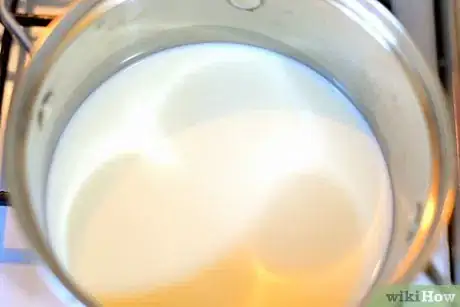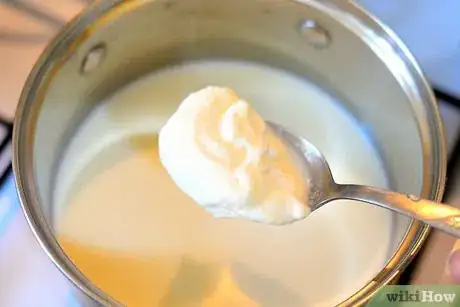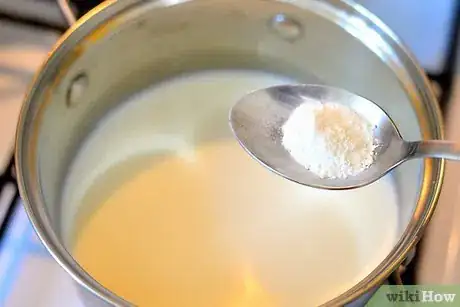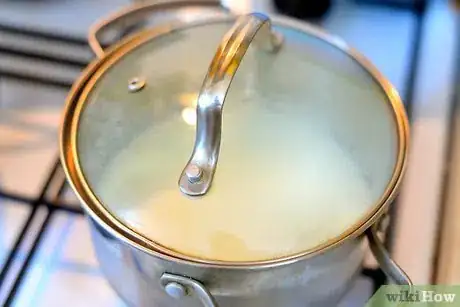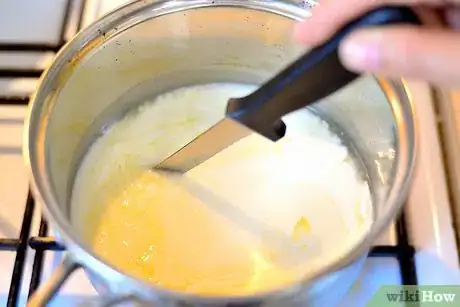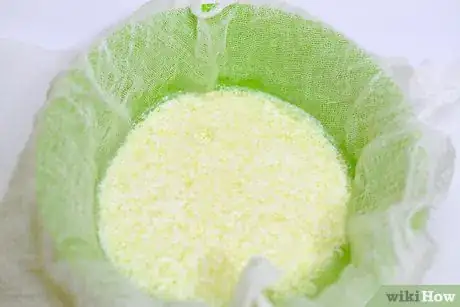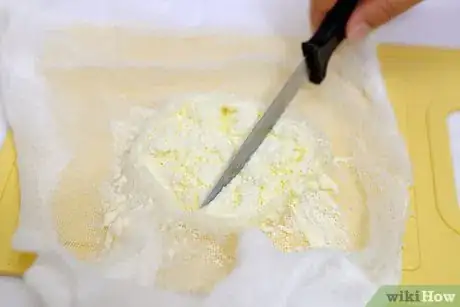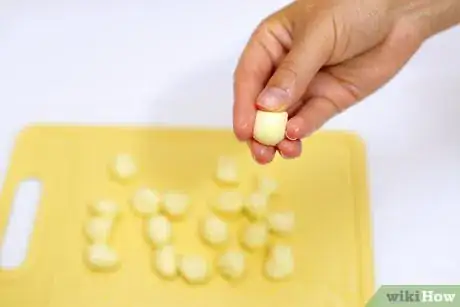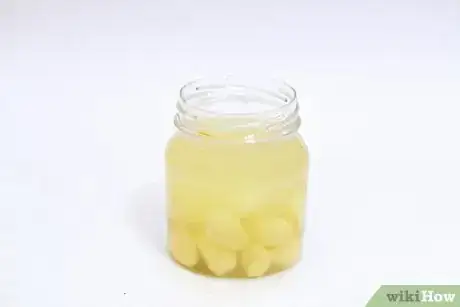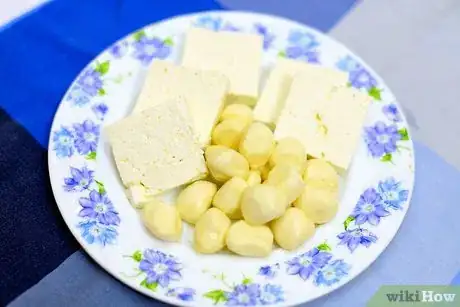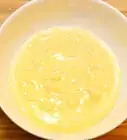wikiHow is a “wiki,” similar to Wikipedia, which means that many of our articles are co-written by multiple authors. To create this article, 13 people, some anonymous, worked to edit and improve it over time.
This article has been viewed 24,637 times.
Learn more...
There are many advantages in making your own cheese. Making your own cheese at home ensures the freshness of your product, and it is generally cheaper by volume to make yourself because the necessary ingredients are few. While there are many different varieties of cheese that you can make at home, the processes are all very similar. Follow these steps to make your own cheese at home.
Ingredients
- 4 gallons (14l) whole cow's milk
- 1 tsp. (2g) mesophilic powder
- 1 tsp. (5g) rennet
- 1 tbsp. (14g) coarse salt
- 2 qt. (1.9l) whole cow's milk
- 1 cup (57g) fresh plain yogurt
- 1 rennet tablet
- 2 lbs. (907g) of salt
Steps
Cheddar Cheese
-
1Pour the milk into a large pot and heat until it reaches 86F (30C).
-
2Stir in the mesophilic powder until it has dissolved, then leave the milk untouched for 45 minutes, making sure that the temperature remains at 86F (30C).Advertisement
-
3Cut curds into cubes of 1/2 inch (1.27 cm) in size once they are set.
-
4Raise the temperature gently to 97F (39C) over the next 40 minutes, and slowly stir.
-
5Allow the temperature of the curds to remain at 97F (39C) for the next 30 minutes, while stirring to keep curds from clumping together.
-
6Do not disturb the curds by stirring in the final 5 minutes.
-
7Place cheesecloth over a strainer and strain the curds. Keep as much of the whey as it takes to fill 1/3 of your pot. Place the strainer containing the curds inside the pot with the whey, cover and keep at a constant temperature of 97F (39C) for 1 hour.
-
8Take the curds out from the strainer and slice them into long thin strips, and mix with coarse salt.
-
9Put the cheese curds into a press and let it sit overnight. The next morning, take the cheese out of the press and let it dry.
Mozzarella Cheese
-
1Pour the milk into a large pot and heat until it reaches 90F (32.2C).
-
2Add the yogurt and keep the heat at a constant temperature for 15 minutes while stirring.
-
3Put the rennet tablet in the pot and continue to mix for about 4 to 5 more minutes.
-
4Cover the pot and continue to keep the temperature constant. Do not disturb the pot or stir for 30 minutes.
-
5Chop the curds that have formed into 1/2 in. (1.27cm) cubes, and then let them sit for 15 minutes while stirring intermittently.
-
6Raise the temperature gently to 118F (47.7C) over the next 45 minutes, then let the temperature remain at 118F (47.7C) for a constant 15 minutes.
-
7Reserve the whey, and put the curd into a flat, warm pan and turn it over every 15 minutes for a total period of 2 hours.
-
8Cut the curd into strips that are 1 to 2 in. wide (2.5 to 5cm) and place them in water at a temperature of 180F (82C). Use wooden spoons to stretch and turn the curd until it is stretchy.
-
9Take the curd out of the hot water and form it into a ball, then place it in water at a temperature of 40F (4.4C) for about 1 hour.
-
10Make a salt brine and place the cheese into it. After a period of 24 hours, take the cheese out and let it dry. You can then eat it or place it in plastic wrap to store it.
-
11Finished.
Things You'll Need
- Strainer
- Cheesecloth
- Cheese press
- Wooden spoons
About This Article
To make homemade cheese, heat whole milk and mesophilic powder in a large pot over the stovetop. Once the milk is done curdling, strain the curds through a cheesecloth over a mesh strainer. Then, heat the curds for another hour. Finally, mix the curds with some coarse salt, pour them into a press, and let them dry overnight. If you want to learn the differences in making cheddar cheese and mozzarella cheese, read on!
